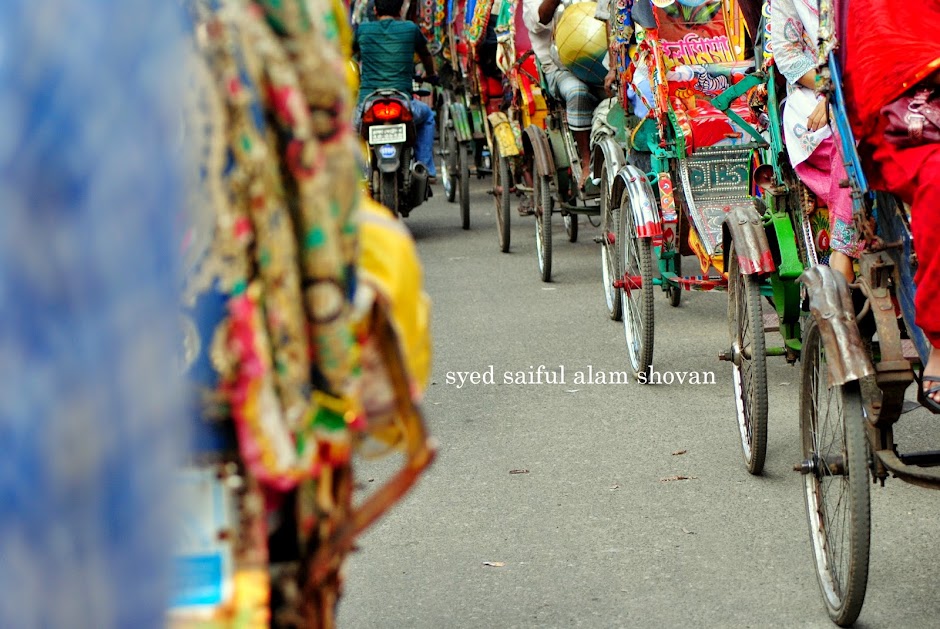 |
| Syed Saiful Alam Shovan |
We had an interesting meeting today with the Asian Development Bank (ADB). We were at their office in Dhaka to discuss some problems that occurred following their “development” of canals in Brahmanbaria and other small cities. Following the “development” of the canal by cementing the sides, what was once a healthy natural place supporting fish and other life has now become a filthy polluted drain.
During the meeting, as is natural, they offered us refreshment. One of us asked for a glass of water. The ADB officials, among whom were two environmental experts, drank coffee and juice, and ate biscuits. The “glass of water” was a small plastic bottle. The coffee came in paper cups with disposable plastic lids and a plastic stirrer. The juice came in a large plastic cup with plastic lid and plastic straw. The biscuits, naturally, were served on single-use plastic plates.
While consuming the food, the officials explained that the problem with the Brahmanbaria canal is the lack of proper solid waste management. The residents of slums, being poor and uneducated, simply toss their waste out the door of their shacks. The local government, despite being trained by ADB, does not dispose of the waste properly. He also suggested that we, as individual activists, go talk to the local government to clean up the mess created by ADB in the first place. (If the local authorities can’t handle the project responsibly, then perhaps you shouldn’t have built it?
One of us launched into a critique of their own practices. How could they criticize slum residents when they know that the rich generate far more trash per person? What about the trash they were generating in their own office? In our office, she continued, we compost our waste and avoid using single-use plastics. We serve water in glasses. We have glass water bottles for seminars. We of course eat off of ceramic or metal plates. How hard is that?
An ADB official responded that, yes, we should separate our waste. He did not even seem to grasp the possibility of avoiding using single-use plastics, though another ADB official acknowledged that these were “good points”. In response to the idea of a surcharge on single-use plastics, they responded that public awareness is the solution. After all, why would an institution focused on economic growth as measured by GDP and on private sector development understand the possibility of reining in the corporations that profit from the use of environmentally-hazardous single-use plastics?
At another point in the meeting, one of us inquired what ADB does if their project has a negative environmental assessment. The answer was a bit hazy; we try to mitigate…but the official did not say that ADB stops the project if the environmental hazards are clear.
When we questioned the wisdom of making cement sides to the canal and thus destroying biodiversity, their response was that this is a city, not the countryside. In a city one cannot have canals and farmland as one would in the city. One may as well say that cities are by definition polluted places that are deathly to their residents, who must choke on the fumes of the cars, be subjected to mounds of plastic trash, and drink dirty water…because that is urbanization, you know, development.
We might have expected that ADB would have the sufficient resources to do a bit of research on ecological practices. Surely they have heard of ecosanitation? Surely they realize that there are ecological ways of dealing with rainwater? Oh, let’s see, has anyone ever heard of rainwater catchment, or systems for recharging groundwater, or parks that become, in part, temporary lakes during the rainy season? These are not difficult issues to research. No, the engineer responsible for the project must instead lecture us on the proper dimensions of a canal to maximize drainage, and one of the environmental experts innocently inquire where she might learn of more ecological practices.
One might also hope that ADB, which claims to wish to end poverty, would have an environmental vision for the future. Surely they understand that poverty also consists of an impoverished environment, where air, water, and soil are polluted and contribute to ill health and early mortality. Surely, then, they will wish to learn from their failures and implement more ecologically-sound projects in future. Instead, they use words like “compromise” and suggest, as above, that cities cannot be environmentally-friendly.
At the end of the meeting, we again asked whether they can unequivocally state that concrete is not environmentally-friendly and is not conducive to biodiversity. They could not. (Earlier in the meeting one official did accidentally remark that in several cases, the canals had been a disaster. When we pushed them to state in which cities, they only named two: Brahmanbaria and Manikganj. The official was obviously aware that he had mis-spoken…not that what he said was not accurate, but it was outside the bounds of what he had meant to say.
Activists will be dreamers…and we will not easily be silenced. We will continue to pursue this issue. We will push ADB to accept that concrete sides of canals are not good for the environment and that there are better solutions to dealing with rainwater. We will alert other municipalities to the possibility of such projects coming to their locale and will urge them not to just “cut and paste” ADB’s mistakes. Our country deserves a much better future than that.
